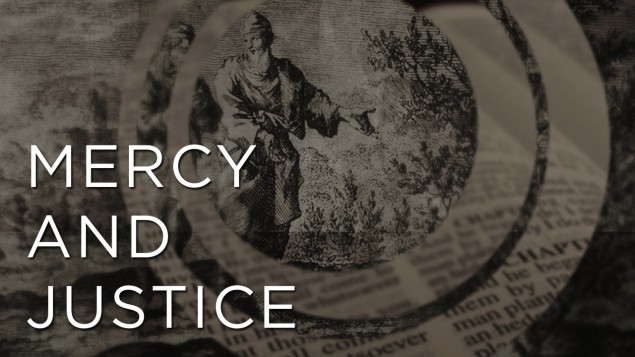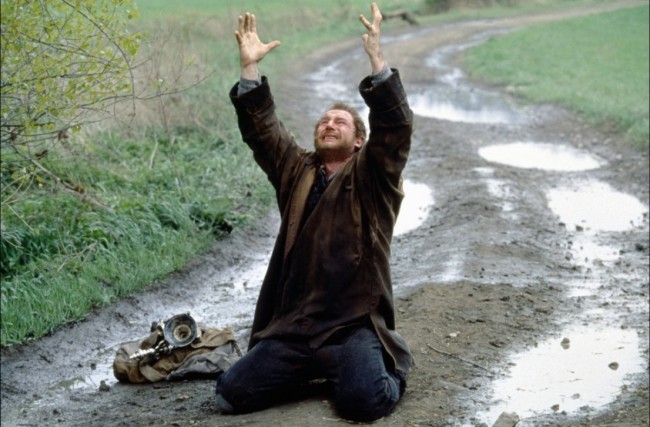by Georgia Center for Opportunity | Apr 18, 2014

Crime needs to be punished. There is no doubt about that. Punishment for crime is a necessary part of maintaining a just society, preserving order and peace, and promoting life and happiness. Citizens need to know that there are consequences for breaking the law and to be motivated to do what is right for the good of society.
While punishment for crime is necessary, it also needs to be dispensed justly. Overly punitive measures can demoralize offenders and their families and cause them to lose faith in the criminal justice system.
Take mandatory minimum sentencing for drug offenses, for instance. This sentencing began in the 1980’s as a way for state officials to get “tough on crime.” However, it stripped judges of the ability to use discretion in sentencing drug offenders, resulting in scores of people spending far too many years behind bars for relatively minor drug offenses. This “tough on crime” mentality led to a massive overcrowding of our nation’s prisons, more costs to taxpayers, and increased recidivism.
When thinking about punishing offenders for their crimes, we must remember that 95 percent of those who enter prison will return to the community at some point. In other words, “today’s prisoners are tomorrow’s neighbors.”[i]
This reality should cause us to approach how we administer justice with a more balanced and humane perspective. We ought to be thinking with the end in mind: How best can we prepare a person for reentry at the moment of sentencing? What obstacles does a person need to overcome personally? Who does this person need to make amends with before he is released? What will keep this person from recidivating?
It is important that we remember that those who have committed crimes are people, and all people have inherent dignity and worth. If we allow ourselves to view a person as less than human, we are tempted to write him off and to refuse to engage in the hard work of helping him to overcome root issues that keep him from thriving. However, if we see those who commit offenses as humans worthy of the same dignity as any other human being, we will be more likely to see their possibility for redemption.
When we examine our own lives – our failings and the consequences of bad choices that we’ve made – we can learn to relate to offenders and have compassion on them. It should show us that just as we have been shown mercy at various points in our lives and given the chance to move forward, criminal offenders likewise could benefit from being shown mercy. This does not mean that we should forgo punishing justly according to the nature of one’s offense, but it should temper the manner in which we approach punishing crime and cause us to reexamine the ultimate outcomes we are trying to achieve. This paradigm shift should cause us to realize that the offender’s restoration to one’s victims, family, and community, is a better aim for our criminal justice system than merely punishment.
A better approach seems to be one that recognizes that crimes are fundamentally committed against other people, not simply the state. The harm one person inflicts upon another needs to be addressed and repaired as best as possible. Simply locking a person away and having the state deal with him is not going to address the needs of the victim, the offender, or the community. A deeper reconciliation is needed.
A criminal justice system that reflects this restorative approach would be far more likely to cultivate a humane and just society.
by Georgia Center for Opportunity | Apr 17, 2014
Below is a guest blog by Dr. Eric Wearne of Georgia Gwinnett College and formerly with the Governor’s Office of Student Achievement. Dr. Wearne currently leads GCO’s College & Career Pathways working group.
**********************************

In its 2013 Report Card, Digital Learning Now, a project of the Foundation for Excellence in Education, argued:
State policy can remove barriers to innovative approaches or it can stifle them with restrictions, red tape, and reinforcement of traditional, unsustainable approaches. It can accelerate reform or it can further entrench the status quo. Without changing state policy, innovative tools and models will fail to scale.
According to the Report Card, however, the news is good:
“states are rising to the challenge of supporting next generation models of learning. In 2013, states debated more than 450 digital learning bills with 132 signed into law. This builds on a record year in 2012 when state lawmakers introduced nearly 700 bills and signed 152 into law.”
To explore these issues specifically, Georgia Center for Opportunity’s College and Career Readiness Working Group heard from Sam Rauschenberg, Deputy Director of the Governor’s Office of Student Achievement, who facilitated the Task Force, and Carla Youmans, Instructional Technology Specialist at South Forsyth High School in Forsyth County, who is coordinating a new hybrid program at that school.
The Governor’s Digital Task Force
In 2012, Governor Deal created a task force to look into online learning in Georgia. The Governor’s Digital Learning Task Force met over the course of 2012-13, and provided recommendations to Governor Deal in December of last year. The Task Force’s recommendations fall into three categories:
- Infrastructure
- Digital Content and Courses
- Blended and Competency-Based Learning
The state has already started to implement some of the Task Force’s recommendations on infrastructure. For example, the FY15 budget includes $3.9 million to connect school systems to the University System’s PeachNet. The AFY14 and FY15 budgets also include $14 million in bond funds to the Georgia Department of Education for district and school grants for equipment required to receive and use added bandwidth (edge devices, LAN, wireless, etc.), and $25 million in general funds to the One Georgia Authority for grants to support extension of high-speed internet access in schools.
Still, opportunities exist in the areas of digital content and courses, and experimenting with new models for blended and competency-based learning. For example the state, via the Georgia Department of Education, currently provides teachers with access to lesson and video content online. However, to maximize teachers’ use of the materials and the potentially transformative power of online learning, much more can be done. The working group discussed the concept of course choice, as has been adopted in Louisiana, and the idea of opening online schools developed in one school system to students from any other school system. Conceptually, the competition should make for improved products and services, all for the purpose of better serving Georgia children. The Governor’s Task Force report alludes to barriers that could make online learning easier and higher-quality. Enabling competition and other market-based approaches would help do that.
South Forsyth High School Hybrid
One school in Georgia that is experimenting within current structures is South Forsyth High School. South Forsyth is preparing to offer a hybrid schedule to a select group of students next year. Mondays are “synchronous”: students will sign on to their class websites when school starts, teachers will teach them online for a portion of the class period, and then students will work independently at home for the rest of the period. Then students will check in again when their next class starts. Tuesdays, Wednesdays, and Thursdays, students come to campus and attend class as all other SFHS students do. Fridays are “asynchronous”: students receive their assignments online, but are free to complete them at their own speed. If a students’ grade drops below a certain level, however, that student is obligated to come in and meet individually (or in very small groups) with the teacher. The implications of this kind of system are many: struggling students can be identified and also given individual help more easily, and within the normal time constraints of a school week; students receive the kind of practice in self-regulation they will need in college; etc.
South Forsyth’s arrangement may not work for every school or every student, and digital learning overall is still in its infancy – we simply don’t yet know the best methods or all the possibilities involved with online learning. But as one task force member argued, we don’t necessarily need one 100 percent solution to improve student achievement and to increase opportunities; we could be successful with 100 one percent solutions. The Governor’s Task Force and South Forsyth High School’s hybrid program play important parts in state and local experimentation that can lead to better outcomes for Georgia students.
by Georgia Center for Opportunity | Apr 14, 2014
Governor Deal signed the criminal justice reform bill, SB 365, into law this past Sunday at Antioch Baptist Church in Gainesville.
This special morning service marked an important milestone for prisoner reentry reform in Georgia and is a testament to the extensive collaboration that has taken place over the last year from the state level down to the community level.

The state has zeroed-in on criminal justice reform for three years now, passing important legislation to improve adult sentencing (2012 and 2013), juvenile justice (2013), and prisoner reentry (2014). The first two reforms were projected to save the state $264 million over a five-year-period, as an increasing number of non-violent offenders are released from prison and placed under community supervision. This move allows expensive prison beds to be reserved for those who pose the greatest threat to society, while providing those with drug addictions and mental health issues the opportunity to receive needed treatment in the community.
Already, the outcome of these reforms has been significant – the state’s prison population has dropped from 57,295 to 53,000 offenders in just two short years, saving the state an estimated $21,000 per inmate per year.
The Governor is hopeful that we will see the same sort of progress made in the realm of prisoner reentry as SB 365 takes effect. This bill makes three important reforms that will assist ex-offenders in obtaining employment:
- It mandates that private background check agencies update their criminal history information on a monthly basis and permanently delete any records that have been restricted or of persons who have been exonerated (absolved from guilt);
- It provides employers a certain level of protection from negligent liability hiring by exercising due care in hiring ex-offenders who have received a Program and Treatment Completion Certificate or a pardon;
- It gives judges discretion in determining whether an offender’s license should be suspended or not for a non-driving-related drug offense.
The success of this reform will be measured with a decreased recidivism rate and increased employment rate among offenders returning to their communities.
Georgia Center for Opportunity is proud to have played a role in influencing the recommendations made by the Georgia Council of Criminal Justice Reform to the state legislature in January 2014, which ultimately made their way into SB 365. GCO has been researching this issue over the past year-and-a-half and believes the state is taking the right approach in working to provide offenders greater access to job opportunities.
Hopefully new bills introduced in subsequent legislative sessions will implement the remaining recommendations made by the Criminal Justice Reform Council on ways to improve the reintegration of offenders in Georgia.
Read more about the signing of this important reform in the Gainesville Times, posted April 14, 2014: https://www.gainesvilletimes.com/section/6/article/98202/ .
by Georgia Center for Opportunity | Apr 8, 2014

The Breakthrough Fellows, along with other GCO team members, recently had the opportunity to watch and reflect on the movie Les Misérables. For those unfamiliar with the story: an ex-convict, Jean Valjean, restores value to his life after a priest accepts him into his home and gives him a second chance to live with dignity. Though Valjean is able to turn his life around, the troubles of his past come to haunt him as his law-zealous adversary, Inspector Javert, recognizes him from his former life.
I found the story of Les Misérables so moving because it perfectly depicts the power of being grounded in morals and bringing purpose to one’s life. By accepting the challenge to become a new man, Valjean is able to transition his life from one stripped of purpose to one dedicated to serving others with true compassion. And though Inspector Javert’s pursuit continually disrupts Valjean’s peaceful life, the morals instilled by the priest are never forgotten. This serves Valjean immeasurably as he overcomes the temptation to slip back into his old ways.
Just as ethics and morals are vital to living well in our personal lives, organizations too must be grounded in values. This reflection on Les Misérables came just on the heels of a larger team discussion about the core values of Georgia Center for Opportunity. Under the example of a ship’s ballast (the heavy material that steadies a vessel), GCO’s President, Randy Hicks, listed Dignity , Humility, Integrity, Excellence, and Team as the traits that guide our work. Through evidence-based policy and community-based solutions, the true foundation of what we do is serving others with these values.
Integrity, Excellence, and Team are common core values for organizations that strive to produce high quality work. What I think makes GCO’s core values unique in the world of think tanks is our inclusion of Dignity and Humility. Often what makes policy effective is not the letter of what is written but rather the principles that connect laws and programs to a higher purpose. As human beings, each of us is inherently valuable and deserving of respect. We know that many of our fellow citizens face barriers to opportunity that limits their ability to thrive, driving our work and creating a sense of urgency. This is how Dignity is made manifest in our work.
But removing barriers to opportunity is complex, and the GCO staff certainly does not have all the answers. Thus we rely on the communities we serve to teach us about their challenges and we work with expert panels and community partnerships to help us identify and implement solutions. We work hard to affect change while keeping in mind our Humility, knowing the limits of what we can achieve alone and recognizing that our greatest impact is realized through working with others.
Human dignity lives by our ability to meet neighbors as equals irrespective of life circumstances, and the ability to accept the compassion of neighbors in times of need. In Les Misérables both Humility and Dignity are not only restoring forces in Jean Valjean’s life, but also guide his interactions with others as a new man. At GCO we recognize, as Jean Valjean did, that it is necessary to hold steadfast to one’s core values. The values that guide our personal lives and our work have the powerful ability to shape a better world around us and hold us to a higher purpose.
by Georgia Center for Opportunity | Apr 3, 2014

Given two rounds of severe winter weather and the rush to early primary elections, the 2013-2014 session of the Georgia General Assembly seemed to fly by. In case you were unable to keep up with the session, this edition of the Capitol Update offers a summary of some of the important legislation that survived to see the Governor’s desk, and some that did not.Legislative Recap
Bills sent to the Governor:
- HB 60: This bill allows land owners/lessees in places such as bars and churches the final decision as to whether properly licensed citizens may carry concealed firearms on their premises, and removes restrictions on non-secure government buildings and public housing. This bill replaced HB 875.
- HB 251: This bill prevents the sell of “e-cigarette” products to minors.
- HB 697: This bill allows for the HOPE scholarship fund to cover 100% of tuition for students who have maintained satisfactory academic progress at a Georgia technical college.
- HB 702: This bill allows for privately funded monuments containing the Ten Commandments, a portion of the Declaration of Independence, and a portion of the Georgia Constitution to be placed on the grounds of the State Capitol.
- HB 714: This bill prevents contracted workers with the state government-school janitors, bus drivers, etc.-from receiving unemployment benefits during summer breaks.
- HB 766: The “Work Based Learning Act” would permit schools – in collaboration with the Department of Labor and the Technical College System of Georgia – to award secondary credit for approved off campus work to students age 16 and over.
- HB 772: This bill requires that adult applicants for and recipients of food stamps or benefits under TANF (Temporary Assistance to Needy Families) submit to drug testing if a state caseworker from the Department of Family and Children Services determines that there is a “reasonable suspicion” of drug abuse. Eligibility of children under both programs is not affected by this legislation.
- HB 990: This bill would require legislative approval for any future expansion of Medicaid in Georgia.
- HB 1080: This bill would allow for the placement of a privately funded monument dedicated to the Rev. Martin Luther King Jr. to be placed on the grounds of the State Capitol.
- SB 98: Prevents coverage for abortions under qualified health plans offered within the state, including any exchanges created by the Affordable Care Act. This bill was amended to allow for consideration of an abortion if the mother’s life is at stake.
- SB 281: This bill mandates that state employees and teachers be offered a high-deductible insurance option in the State Health Benefit Plan.
- SB 365: This bill focuses on lowering barriers to employment for those returning from prison. The legislation contains many of the recommendations from our Prisoner Reentry Working Group.
Bills that Failed:
- HB 707: This bill prevents the State Insurance Commissioner from enforcing provisions in the Affordable Care Act (ACA), local and state agencies and governments from spending money attached to the ACA, and prevents the University of Georgia from operating the navigator program that assists people who are seeking coverage under the ACA.
- HB 885: This bill allows for the usage of medical cannabis derivatives for the treatment of patients who suffer from severe seizure disorders and encourages research on additional medical uses of cannabis. Despite many attempts at attaching this bill to other legislation, HB 885 was not passed.
- HB 886: This bill would require the governing body of Charter Schools to hold a minimum of two public hearings to review their budget before its adoption each year.
- HB 897: This bill would eliminate obsolete provisions, and update and clarify other provisions relating to elementary and secondary education. It is noteworthy that aspects of this legislation (Section 36) would directly impact the approval process for homeschooling. After Sen. Tippins and the Senate Education Committee drastically altered the content of this bill in relation to charter schools, the House and Senate leadership were engaged in a battle over the status of this bill.
- SB 167: This bill calls for the creation of an advisory council to review Common Core Standards and propose changes that are “in the best interest of students, their parents, teachers, and taxpayers.” Following this bill’s “unfavorable recommendation” by the House Education Committee, Sen. Ligon attempted to add this bill to HB 897. All three amendments that would have imported this bill into HB 897 failed on the Senate Floor.
- SB 350: This bill would begin a process of privatizing child welfare services through contracts with community-based providers. Following the favorable recommendation of a more watered-down version of this bill by the House Judiciary Committee, Sen. Unterman attempted to attach this bill to other legislation. Shortly before Sine Die, Gov. Deal appointed the “Child Welfare Reform Commission” to further study this issue.
- SB 397: This bill, known as Ava’s Law, mandates that state healthcare plans provide coverage children with autism. Following action in the Senate Health and Human Services Committee, this bill was attached to HB 885-the Medical Marijuana Bill-and renamed the “Children’s Care Act.” Despite Sen. Unterman’s attempts to attach this bill to other legislation, SB 397 was caught in the battle between the House and the Senate and did not pass this year.
_____________________________________________________________________________ Thanks to Eric Cochling, our VP of Policy Advancement, Jamie Lord, our director of government affairs, and Jacob Stubbs, our legislative intern and John Jay Fellowship alumnus for their able contributions to this update.




